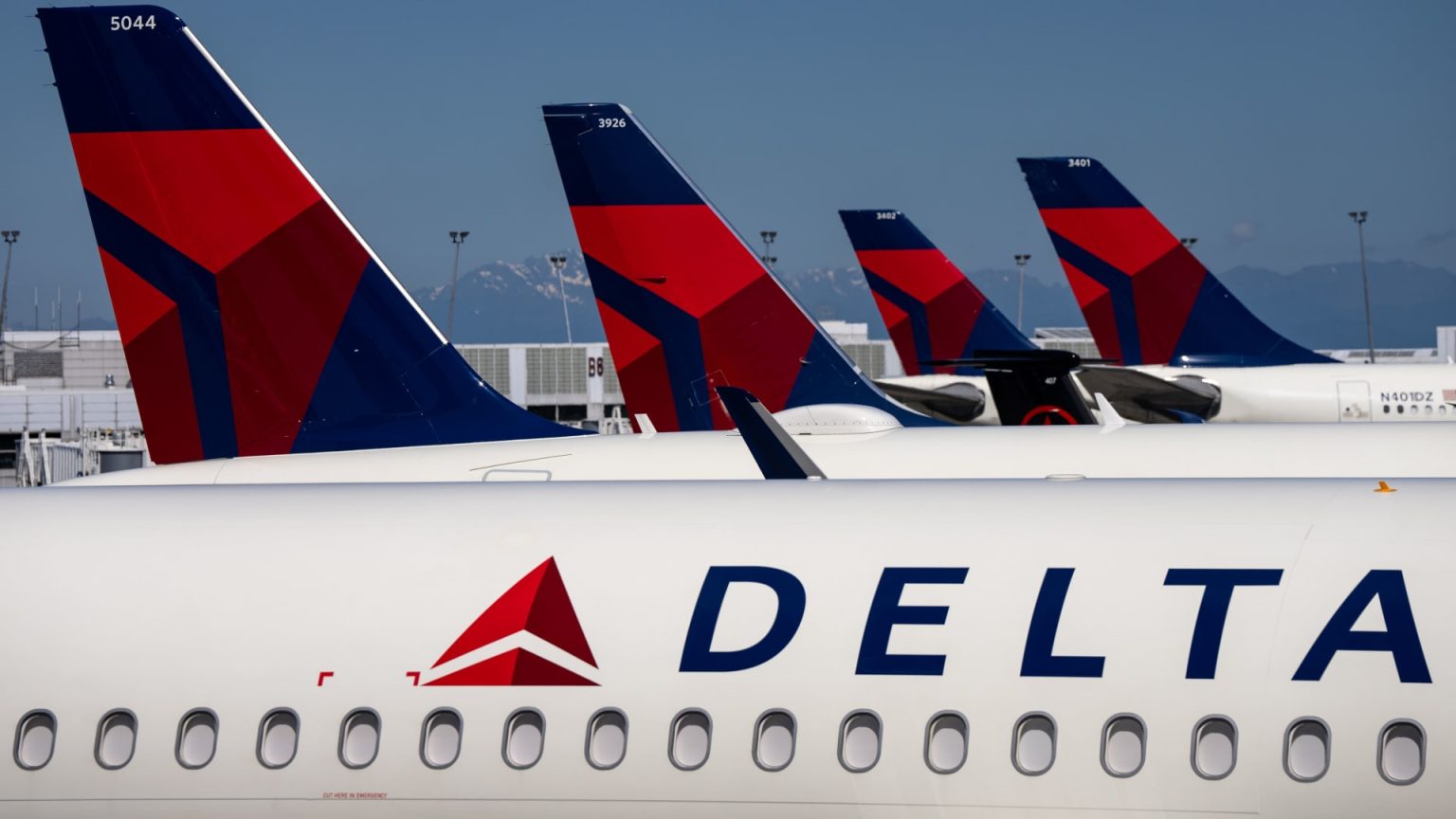Delta Air Lines has revised its revenue and profit forecasts downwards for the first quarter of 2024, attributing this decision to weaker domestic demand amidst growing consumer uncertainty. The airline’s revenue increase is now expected to be capped at 5%, a drop from earlier projections of up to 8%. In response to these forecasts, Delta shares have fallen significantly in after-hours trading, highlighting broader concerns within the travel industry regarding the current economic climate.
| Article Subheadings |
|---|
| 1) Delta Air Lines Cuts Revenue and Profit Forecasts |
| 2) Factors Behind the Revised Outlook |
| 3) Impact on Delta and the Airline Industry |
| 4) Responses from Airline Executives |
| 5) Future Forecasts and Market Concerns |
Delta Air Lines Cuts Revenue and Profit Forecasts
On June 19, 2024, Delta Air Lines made headlines by announcing a significant downturn in its financial projections for the first quarter ending March 31. The airline indicated that it anticipates revenue growth to increase by no more than 5% compared to the previous year, down from an earlier forecast that estimated a growth range of 6% to 8%. In tandem with this adjustment, Delta has reduced its adjusted earnings forecast per share to between 30 cents and 50 cents, compared to its prior guidance of 70 cents to $1. This substantial revision underscores the airline’s recognition of changing market conditions.
Factors Behind the Revised Outlook
Several factors have contributed to Delta’s revised outlook. The airline cited a decline in both consumer and corporate confidence as a primary driver of the weakened demand for air travel. Increasing macroeconomic uncertainties have influenced public sentiment, leading to a notable reduction in bookings from both leisure and business travelers. In recent months, safety concerns following two aviation incidents—a deadly midair collision involving a regional jet and a military helicopter in January, along with an incident at Toronto’s airport—have also exacerbated the decline in consumer confidence, further impacting Delta’s sales projections.
Impact on Delta and the Airline Industry
The downward adjustment in Delta’s forecasts has had immediate repercussions, notably reflected in its stock performance. Following the announcement, Delta’s shares fell over 13% in after-hours trading, following a more than 5% decline during regular trading hours earlier that day. This response is indicative of a broader market trend, as other airlines have also seen their share prices fluctuate due to similar concerns surrounding consumer spending and economic health. Analysts have noted that the airline sector, which had shown resilience post-COVID-19 pandemic, is beginning to reflect the broader economic malaise affecting various industries.
Responses from Airline Executives
Delta’s CEO, Ed Bastian, addressed the revised outlook during an interview on the CNBC program “Closing Bell.” While he expressed a belief that a recession is not imminent, he acknowledged a considerable pullback in bookings from both leisure and business travelers. Bastian emphasized the cautious tone among consumers, specifying that safety concerns around recent incidents have notably influenced consumer behaviors. Other airline executives, including those from American Airlines, Southwest Airlines, and United Airlines, are also expected to share insights at an upcoming airline industry conference, where market trends and consumer behavior will be key topics of discussion.
Future Forecasts and Market Concerns
Moving forward, the airline industry remains under scrutiny as it grapples with the challenges posed by shifting consumer attitudes and economic uncertainty. Delta continues to report a stable demand for premium and international travel, as well as growth in loyalty programs, suggesting that not all areas of the business are equally affected. However, the current economic landscape indicates that airlines may need to adjust their strategies to navigate weaker domestic demand. Industry analysts will closely monitor upcoming reports and forecasts to gauge how airlines will adapt to these challenges and what this means for concentrated trends in consumer travel spending.
| No. | Key Points |
|---|---|
| 1 | Delta Air Lines reduced its revenue growth forecast for Q1 2024 to a maximum of 5% from a previous estimate of up to 8%. |
| 2 | The adjusted earnings forecast per share has been cut to between 30 cents and 50 cents. |
| 3 | Weakened consumer confidence and macroeconomic uncertainty are major reasons for the revised forecasts. |
| 4 | Safety concerns following two aviation incidents have exacerbated the decline in consumer confidence. |
| 5 | Delta’s stock fell over 13% following the announcement, reflecting broader concerns in the airline sector amid signs of reduced consumer spending. |
Summary
The recent forecast revisions by Delta Air Lines echo a troubling sentiment in the airline industry as consumer confidence wanes and demand contracts. The combination of economic uncertainty and safety concerns presents a significant challenge for the airline sector, traditionally regarded as a bellwether for consumer spending. As Delta and its competitors navigate this turbulent landscape, the upcoming industry conference will likely provide further insights into how airlines plan to adapt to these dynamic market conditions.
Frequently Asked Questions
Question: What are the main reasons for Delta Air Lines revising its forecasts?
Delta Air Lines revised its forecasts primarily due to weakened domestic demand, decreased consumer and corporate confidence, and safety concerns stemming from recent aviation incidents.
Question: How has Delta’s stock been affected by its forecast revision?
Delta’s stock fell over 13% in after-hours trading and over 5% during regular trading following the announcement of its revised revenue and earnings outlook.
Question: What do airline executives predict for future market conditions?
Airline executives, including Delta’s CEO Ed Bastian, predict that while a recession may not be imminent, consumer concerns are affecting both leisure and business travel bookings.


